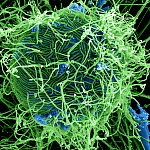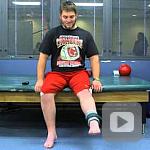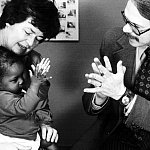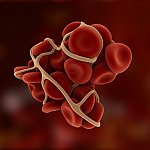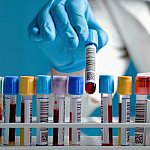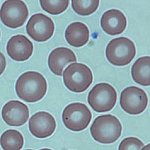You are here
December 22, 2014
2014 Research Highlights — Clinical Advances
Prevention, Diagnosis, and Treatment of Human Disease
With NIH support, scientists across the country and the world conduct wide-ranging research to improve the health of the nation. Groundbreaking NIH-funded research often receives top scientific honors. In 2014, these honors included support for 1 of 3 Nobel laureates in chemistry and 4 NIH-funded recipients of awards from the Lasker Foundation. Here's just a small sampling of the research accomplishments made by NIH-supported scientists in 2014.

